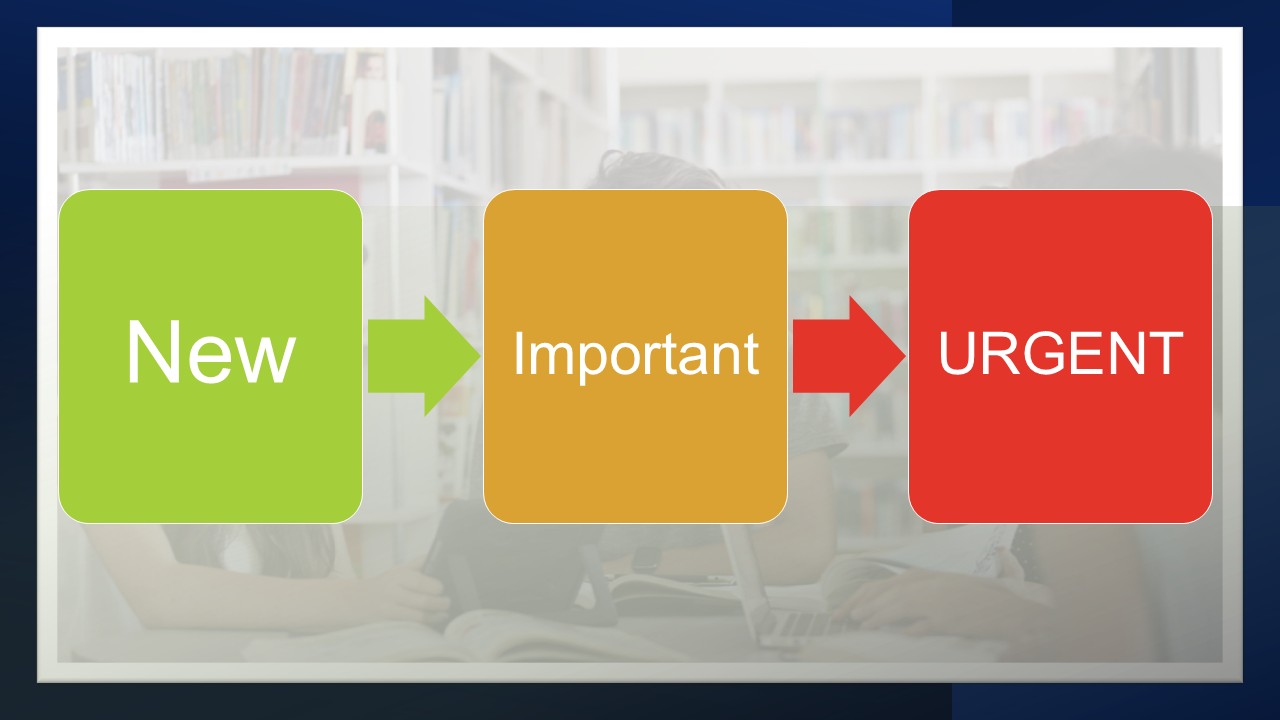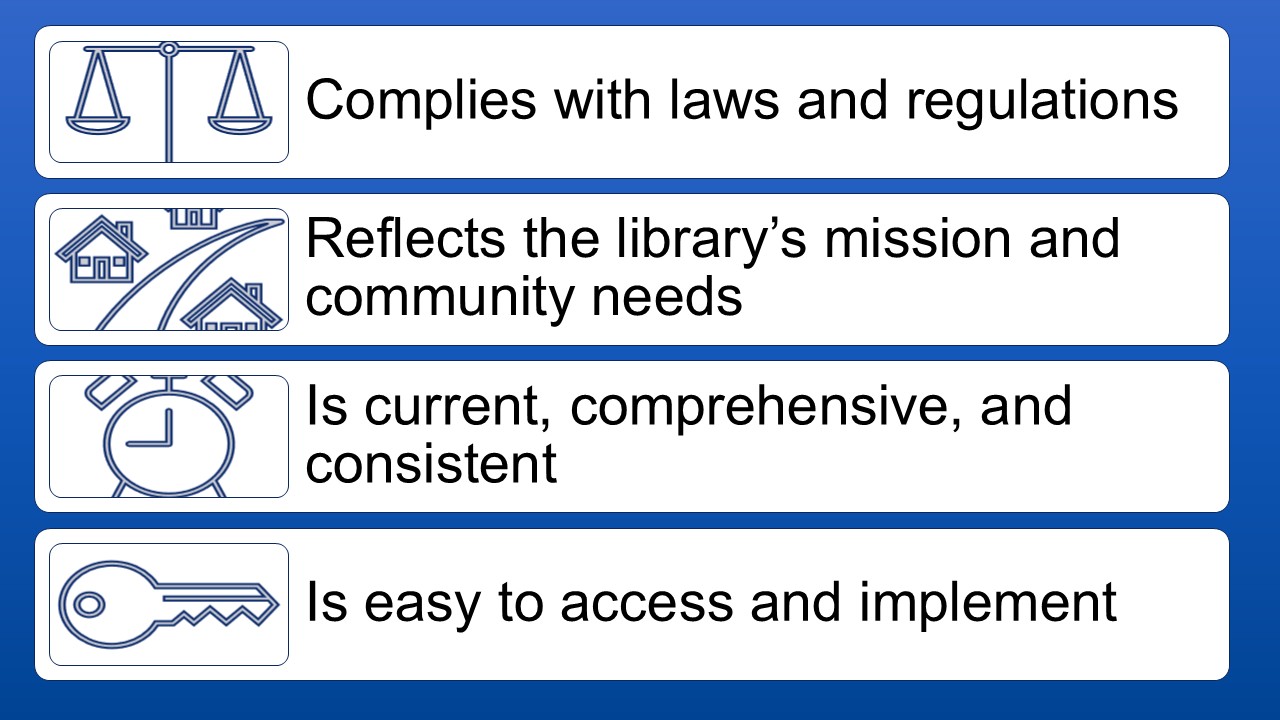Regular Review and Evaluation
| Site: | MSL Learn |
| Course: | Lawful and Fair: Policy Development for Public Libraries |
| Book: | Regular Review and Evaluation |
| Printed by: | Guest user |
| Date: | Tuesday, 20 January 2026, 4:50 PM |
Where to Start

Your library may have a long list of policies, some of which may be long overdue for review. Where to begin? Start by considering which policies, if any, address an urgent, or time-sensitive, issue in your library. Then, consider what policies are most important to your library’s operations and staff.
Urgent policy changes:
Urgent means that there is an immediate, time-sensitive issue that needs to be addressed through policy as soon as possible. Perhaps there is a recent change to the law, to your agreement with the city or county, or to city/county policies that needs to be reflected in a library policy. The board may prioritize policies when there is a time-sensitive issue to be addressed, even if that policy has been recently reviewed.
Important policy changes:
Important means that the policy may not be urgent but that it has a profound impact on library services. For example:
If your library has switched to a new catalog system, you may need to update your circulation policies and procedures to match your new everyday practices.
Something New?
If your library is adding a brand new service or physical space within the library, such as a new meeting room or a makerspace, you may need to consider whether the library’s current policies cover use of that new service or space, whether those policies need to be updated to include the new service or space, or whether you need a brand new policy to address unique considerations pertaining to the new service or space.
Schedule a Regular Review

Schedule a regular review cycle for the board. Public Library Standards --10.102.1158 (11) --require that a policy is reviewed at least once every four years.
If a policy under review is still working well for the library, great! You don’t need to make any changes.
Simply document that the board reviewed the policy on that date and that no changes were necessary.
Template for Reviewing Library Policies
There are a lot of questions to discuss when deciding to review a policy--not just a schedule. This template includes some questions you may need to answer before moving ahead.
Access a downloadable/printable version of this template in the Library Policies Handbook.
Title of Policy |
Rating/Accountable |
|
Date of Adoption or Update |
|
|
Who is the policy for? |
|
|
Rate the importance of the policy to daily operation |
|
|
Rate the difficulty of enforcing the policy |
|
|
Is the policy required? |
|
|
Does the policy clearly state expectations and consequences? |
|
|
Does the policy clearly state who is responsible for enforcing it? |
|
|
Does the policy clearly state how to provide comment or suggestion for improvement? |
|
|
Does the policy balance library resources and service to the public? |
|
|
Does the policy favor service to the public with available library resources (staff/budget)? |
|
|
Have the statutes cited in the policy, if applicable, been updated or replaced since the last review? |
|
Legal Considerations
Policies are legal statements adopted by the board. It’s a good practice to reflect on these questions as you review a policy:
- Is our policy legal? It’s best to ask your local attorney about this if you’re not sure.
- Is our policy clear and concise?
- Are the consequences reasonable and measurable?
- Is this policy fair to everyone?
These questions circle back to the qualities shared throughout this course. Wherever you are in the policy development or review cycle, be sure to keep these in mind and involve the appropriate expertise to stay on track.

Access to Policies
This has been mentioned earlier in the course so it should come as no surprise that part of review and evaluation of policies includes how policies are posted and changes communicated to staff and patrons.
- Has your website changed over the course of the review process?
- Who will do the work of improving public access to updated policies?
- Do you need to create posters, notices, newsletters, or press releases?
- What training will be required for staff?
- What is the timeframe to update staff handbooks or manuals?
The director will lead the effort to train staff in any new procedures required to implement new or updated policies.
Lather, Rinse, Repeat
The Public Library Standards required by the Montana State Library say
“the board adopts and regularly reviews policies that reflect the mission and goals of the library. The policies govern use of the library, its materials, and services. No single policy goes more than four years without review.” (Administrative Rules of Montana 10.102.1158)

Over the course of a board member's term, the policy review cycle will be an important responsibility that is central to the success of your library. Engagement with director, staff, and the public will ensure that policies
- Comply with laws and regulations
- Reflect the library’s mission and community needs
- Are current, comprehensive, and consistent
- Are easy to access and implement
Your next activity is the Course Evaluation.